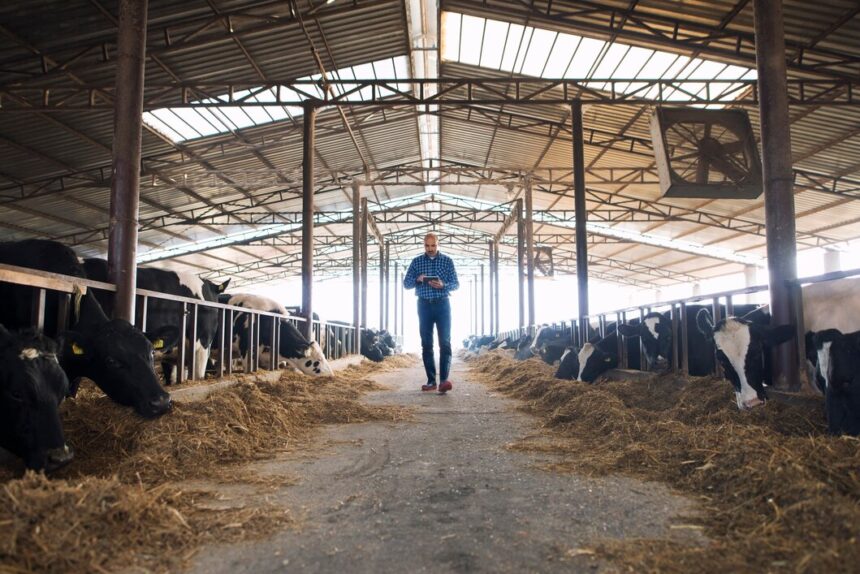Climate change poses significant challenges to agriculture, particularly in countries like South Africa, where farming is a vital part of the economy and food security. Climate-smart agriculture (CSA) aims to increase productivity while enhancing resilience to climate change and reducing greenhouse gas emissions. Here are ten effective strategies to implement climate-smart agriculture in South Africa.
1. Diversified Crop Rotation
Implementing diverse crop rotations can enhance soil health and reduce pest and disease pressure. By rotating crops, farmers can improve biodiversity, increase nutrient availability, and reduce reliance on chemical fertilizers and pesticides. This practice can also help mitigate the effects of climate change by improving soil resilience and reducing erosion.
2. Conservation Agriculture
Conservation agriculture focuses on minimal soil disturbance, maintaining soil cover, and rotating crops. This approach helps improve soil structure, enhance water retention, and reduce erosion. Techniques such as no-till farming and cover cropping can significantly benefit South African farmers, especially in areas prone to drought.
3. Agroforestry Practices
Integrating trees and shrubs into agricultural landscapes can provide multiple benefits, including enhanced biodiversity, improved soil fertility, and increased resilience to climate change. Agroforestry systems can also provide additional income through timber, fruit, and other forest products, while reducing the need for synthetic fertilizers.
4. Water Management Techniques
Efficient water management is crucial in South Africa, where water scarcity is a significant concern. Implementing rainwater harvesting, drip irrigation, and soil moisture monitoring can help optimize water use and reduce wastage. These practices ensure that crops receive adequate moisture while conserving water resources.
5. Soil Health Improvement
Investing in soil health is essential for sustainable agriculture. Practices such as organic amendments, crop residues, and green manures can enhance soil fertility and structure. Regular soil testing helps farmers understand their soil’s nutrient needs and tailor their management practices accordingly.
6. Use of Climate-Resilient Crop Varieties
Adopting climate-resilient crop varieties can enhance productivity under changing climatic conditions. Farmers should be encouraged to select drought-tolerant and heat-resistant crop varieties to withstand extreme weather events. Collaborating with agricultural research institutions can help farmers access these improved varieties.
7. Integrated Pest Management (IPM)
Implementing integrated pest management strategies can help reduce reliance on chemical pesticides, which can harm the environment. IPM focuses on understanding pest life cycles, using biological controls, and applying eco-friendly pesticides as a last resort. This approach promotes sustainable pest management while protecting crop yields.
8. Training and Capacity Building
Educating farmers about climate-smart practices is vital for successful implementation. Providing training programs, workshops, and resources can empower farmers to adopt sustainable practices. Collaboration with agricultural extension services and local organizations can facilitate knowledge sharing and capacity building.
9. Promotion of Sustainable Livestock Management
Livestock farming is an integral part of South Africa’s agriculture. Implementing sustainable livestock management practices, such as rotational grazing, improved feed efficiency, and better herd health management, can reduce greenhouse gas emissions and enhance the resilience of livestock systems.
10. Policy Support and Incentives
Government policies and incentives play a crucial role in promoting climate-smart agriculture. Policymakers should provide financial support for farmers adopting sustainable practices, facilitate access to credit, and create an enabling environment for innovation in agriculture. Collaborative efforts between government, NGOs, and private sector stakeholders can drive the adoption of climate-smart agriculture across the country.
Implementing climate-smart agriculture in South Africa is essential for ensuring food security, promoting sustainable livelihoods, and addressing the challenges posed by climate change. By adopting these ten strategies, farmers can enhance resilience, improve productivity, and contribute to a more sustainable agricultural sector. The collective effort of farmers, policymakers, and communities is crucial for the successful implementation of these practices and for safeguarding the future of South Africa’s agriculture.
Join 'Farmers Mag' WhatsApp Channel
Get the latest Farming news and tips delivered straight to your WhatsApp
CLICK HERE TO JOIN






